Department Chair

He, Qingfang
Professor
Molecular Genetics, Biotechnology
Office Location: FH 406
Phone: 501-916-6533
qfhe@ualr.edu
Research Interests
The major research emphases of our laboratory have been studying the molecular mechanisms by which cyanobacteria acclimate to high light (HL) stress and engineering cyanobacteria for the production of plant secondary metabolites. We are particularly interested in the function and regulation of a family of four HL-inducible polypeptides (HLIP) in the cyanobacterium Synechocystis sp. PCC 6803. HLIPs are required for cyanobacterial to survive the exposure to HL, which causes oxidative stress, redox disturbance and other stresses that result in reduction in photosynthesis and the cell viability. These research activities elucidate HL-stress signaling pathways and reveal the molecular machineries that cells exploit for stress responses. We are also highly interested in using cyanobacteria and other microalgae as bioreactors for the production of plant secondary metabolites, biofuel, and valuable proteins. This is so far a field at its very early stage of development, however, its prospect in research and industry is foreseeable as microalgae systems offer potential advantages (e.g. tolerance to high salinity, ease to tailor genetically and grow in low cost media) over many current existing systems. We are exploring the potential of cyanobacteria as a “cell factory” to produce phenylpropanoids and unsaturated fatty acids. We also use the cyanobacterial cells as a complex “experiment station” to study the functions of these compounds in stress defense and cell survival.
Primary Teaching
BIOL 3300 – Genetics
BIOL 4413/5413 – Immunology
ASCI 7385 – Concepts in Genetic Analysis
ASCI 7387 – Genomics
Program Coordinators
Ali, Nawab

Professor, Coordinator of Graduate Studies
Molecular Biology, Biotechnology
Office Location: ETAS 329G
Phone: 501-916-6518
nali@ualr.edu
Research Interests
My research interests encompass interdisciplinary areas of biochemistry, biotechnology, and cell and molecular biology. Major focus is on understanding receptor mediated signal transduction, as well as intracellular signaling mechanisms mediated by G-proteins and their receptors, second messengers such as inositol polyphosphates, protein kinases, and phosphatases. Emphasis is placed on subcellular compartmentalization, vesicular membrane trafficking, protein-protein interactions, and cellular regulation of apoptosis. My laboratory is also interested in bioinformatics and proteomics approaches in understanding evolutionary and phylogenetic adaptations of genes in higher life forms relative to lower organisms. Biomedical engineering interests include development and characterization of novel nanomaterials for biomedical applications. We are also interested in NASA-related research on counter measure approaches to biological effects of microgravity.
Primary Teaching
BIOL 2401 – Microbiology
BIOL 4190 – Senior Biology Seminar
ASCI 7399 – Signal Transduction and Regulation of Cell Function
Leacock, Stefanie
Instructor, Coordinator of Undergraduate Studies
Genetics, Developmental Biology
Office Location: FH 409
Phone: 501-916-6526
swleacock@ualr.edu
Research Interests
My research areas have included C. elegans germline development and zebrafish as a cancer model system. I now integrate research using model organisms such as C. elegans, planaria, and sea urchin into lab courses for students. I am also interested in biology education, including undergraduate research projects using online databases and promoting student access to course materials by developing open access resources using LibreTexts.org.
Primary Teaching
BIOL 1401 – Science of Biology
BIOL 1402 – Biological Concepts I
BIOL 3300 – Genetics
BIOL 3400 – Developmental Biology
Faculty
Baltosser, William H.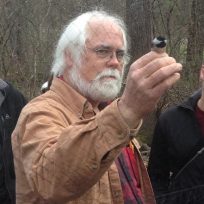
Professor (Emeritus)
Biostatistics, Molecular Systematics, Ecology
Office Location: SCLB 373
Phone: 501-916-6518
whbaltosser@ualr.edu
Research Interests
My research fits into three broad categories: (1) Evolutionary Ecology, (2) Phylogenetics, and (3) Conservation Biology. Within each discipline my approach is both field and laboratory based. I am skilled in statistical analysis and this too is an area of interest. I have over 50 publications since my first in 1975, which collectively reflect my diverse background in that these publications have dealt with birds, mammals, reptiles, fish, Lepidoptera, and biostatistics. Support of my research comes from the U.S. Fish and Wildlife Service, U.S. National Park Service, AR Game and Fish Commission, AR Natural Heritage Commission, The Nature Conservancy, and the U.S. Department of Agriculture (SARE).
Bush, John M.
Professor
Cell and Molecular Biology, Clinical Biology
Office Location: SCLB 381
Phone: 501-916-6520
jmbush@ualr.edu
Research Interests
My lab is focused onto using the simple eukaryotic organism Dictyostelium discoideum (DictyBase Home) to answer key questions in Cell and Molecular Biology. Interested in vesicle targeting, protein sorting, osmoregulation, biomaterials, and my highest focus is on RAB GTPase function in axenic growth and development biology.
Primary Teaching
BIOL 4401/5401 – Cell Biology
BIOL 4417/5417 – Molecular Biology
BIOL 4499/5499 – Bacteriology
BIOL 4499/5499 – Virology
Clifton, Ian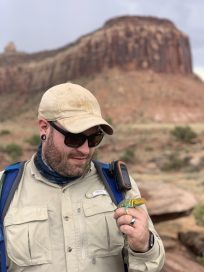
Assistant Professor
Evolutionary Biology, Principles of Ecology
Office Location: FH413
Phone: 501-916-6528
itclifton@ualr.edu
Research Interests
I am an integrative biologist and evolutionary ecologist focused on investigating the mechanisms underlying organismal responses to rapid environmental change. I am particularly interested in understanding the role of phenotypic plasticity in mediating these responses in reptiles and the molecular processes underpinning that plasticity. I employ laboratory and field experiments to explore physiological, morphological, and behavioral variation within and among populations and the eco-evolutionary processes underlying that variation, with the aim of understanding how that variation and the eco-evolutionary processes at work affect long-term population and species persistence in changing environments.
Primary Teaching
BIOL1400- Evolutionary and Environmental Biology
BIOL3303- Principles of Ecology.
Grace, Stephen C.
Associate Professor, Director of Campus Garden
Plant Biochemistry, Plant Physiology
Office Location: SCLB 377
Phone: 501-916-6522
scgrace@ualr.edu
Research Interests
I am a plant physiologist specializing in plant biochemistry and metabolism with the aim of improving both the nutritional value and stress tolerance of crops. My research interests include: metabolomics and metabolic regulation in plants, identification and characterization of high value plant natural products, oxidative stress, antioxidants, and oxidant signaling mechanisms, physiological ecology of plant secondary metabolism, and bioenergetic scaling and plant productivity. I am also Director of the UA Little Rock Campus Garden. This is an ongoing project to establish a working campus garden to promote training in urban agriculture for teaching, research, and public service.
Primary Teaching
BIOL 2402 – Botany
BIOL 4419/5419 – Plant Physiology
BIOL 4499/5499 – Metabolomics
BIOL 4399 – Plants, Food, and People
Hearnsberger, Scott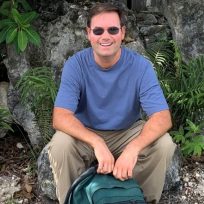
Instructor
Anatomy and Physiology
Contact Information
Office Location: FH 314
Phone: 501-916-6524
smhearnsberg@ualr.edu
Research Interests
I have worked under a NASA grant, examining bone resorption and vascular reactivity using hindlimb suspension models, simulating a microgravity environment. Studies included examining the effects of dietary phytoestrogens on vascular reactivity and the rates of bone resorption.
Primary Teaching
BIOL 1411 – Human Anatomy & Physiology I
BIOL 1412 – Human Anatomy & Physiology II
BIOL 1433 – Essentials of Human Anatomy & Physiology
Khodakovskaya, Mariya
Professor, Director of Applied Sciences
Plant Biology, Molecular Technology
Office Location: ETAS 353B
Phone: 501-916-6525
mvkhodakovsk@ualr.edu
Research Interests
We are working on the development of innovative approaches for the enhancement of plant productivity and plant tolerance to environmental stress using advanced methods of genetic engineering, molecular biology, and nanotechnology. An important part of our work is understanding the molecular mechanisms of the positive effects of nanomaterials in crops. To clarify the basis for enhancement of plant productivity and stress tolerance caused by the application of nanomaterials, we are investigating the effects of nanomaterials on total plant transcriptome, proteome, and metabolome.
Primary Teaching
BIOL 4427/5427 – Tissue Engineering
BIOL 4399/5399 – Biochemistry of Biological Molecules
ASCI 7386 – Recombinant DNA Methods and Applications
Landers, Joshua
Instructor
Anatomy and Physiology, Clinical Biology
Office Location: FH 402
Phone: 501-916-6535
jblanders@ualr.edu
Research Interests
The hormetic effects at a molecular level of blood flow restriction (BFR) exercise in regard to cognitive longevity (e.g. brain derived neurotrophic factor) in human subjects. The fibrinolytic effects of BFR (e.g. tissue plasminogen activator) in patients suffering from deep vein thrombosis.
Primary Teaching
BIOL 1411 – Human Anatomy & Physiology I
BIOL 1412 – Human Anatomy & Physiology II
BIOL 1433 – Essentials of Human Anatomy & Physiology
BIOL 4422 – Human Physiology
Lesch, Raffaela
Assistant Professor
Animal Behavior
Office Location: FH 410
Phone: 501-916-6536
rlesch@ualr.edu
Research Interests
I’m a zoologist and bioacoustician specialized in domestic animals. My research focuses on the intersection of domestication and bioacoustics. I work on questions surrounding voice producing structures, interspecies communication, and human-animal interaction. One of the main questions driving my research at the moment is how the process of domestication changed domestic animal‘s voice producing structures.
Primary Teaching
BIOL 2403 – Zoology
Sikes, Robert S.
Professor (Emeritus)
Behavioral and Evolutionary Ecology
Office Location: FH 414
Phone: 501-916-6528
rssikes@ualr.edu
Research Interests
My primary area of scholarship now is in ethical and appropriate use of wild vertebrates in animal research. My empirical work to date has involved diverse wild vertebrates both in captivity and in the field. This experience focused my interest on the mismatch between regulatory and ethical considerations for domesticated animals as compared to their wild counterparts. I am working toward an appropriate framework for oversight and use of wild animals in research and education through a collaborative approach between researchers, regulatory agencies, accrediting bodies, and funding sources.
Tang, Fusheng
Associate Professor
Molecular Biology of Aging
Office Location: SCLB 385
Phone: 501-916-6530
fxtang@ualr.edu
Research Interests
The target of rapamycin complex 1 (TORC1) is an essential enzyme complex for cell growth. However, a subset of TORC1 negatively regulates lifespan extension. Using the model organism budding yeast, we found that a two-fold up-regulation of a lipid transporter Osh6 significantly extends the replicative lifespan, a measure of rounds of cell division. Intriguingly, this longevity manipulation down-regulates TORC1 but does not harm cell growth, suggesting a specific repression of the pro-aging subset of TORC1. We are exploring the underlying mechanisms for such repression with a combination of biochemical, cell biological, genetical, and genomics approaches. Since human homologs of Osh6 and mTORC1 are involved in the development of cancer and other age-dependent diseases, elucidation of the anti-aging mechanisms triggered by Osh6 would provide insights to practices aimed at extending the lifespan of stem cells as well as the health span of humans.
Primary Teaching
BIOL 2401 – Microbiology
BIOL 3300 – Genetics
BIOL 4418/5418 – Biotechnology
BIOL 4499/5499 – Genomics
Wang, Hongli
Associate Professor
Plant Molecular Biology
Office Location: FH 411
Phone: 501-916-6531
hxwang@ualr.edu
Research Interests
Improvement of crop yield and nutritional quality has always been my research goal. High yield and high nutritional quality super crops need to possess the following attributes: (1) have extraordinary capacity of assimilation (i.e. photosynthesis, mineral element absorption and nitrogen fixation); (2) preferentially transport and accumulate assimilates to economically significant organs; (3) should be highly capable to adapt their structures and developmental processes in response to environmental stresses; (4) be highly resistant to diseases (viruses, bacteria and fungi) and insects. Therefore, my lab and I are undertaking research to understand the physiological, cellular and molecular bases of these processes, and as well as their underlying controlling and regulatory mechanisms via interdisciplinary approaches: Plant Physiology, Plant Cell and Molecular Biology, Genomics, and Plant Development and Nutrition.
Primary Teaching
BIOL 1401 – Science of Biology
BIOL 4426/5426 – Plant and Human Nutrition
Staff

Andrew Current
Administrative Analyst
Office Location: FH 406
Phone: 501-916-6527
acurrent@ualr.edu
Dawn Johnson
Senior Research Assistant
Office Location: FH 406
Phone: 501-916-3270
dmjohnson@ualr.edu
Adjunct Faculty

Allen, William
Professor
Human Anatomy
wallenmd@gmail.com
Clark, David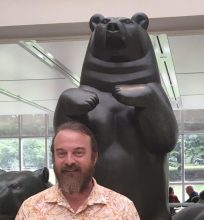
Professor
Zoology
dwclark@ualr.edu
Green, Reed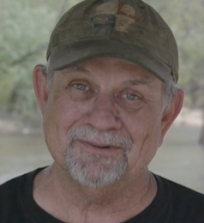
Professor
Botany
wrgreen@ualr.edu
Wilson, Michael
Clinical Biology
mpwilson@uams.edu
Emeritus and Retired Professors
Lanza, Janet (retired 2016)
Evolutionary Ecology, Plant-Animal Interactions
jxlanza@ualr.edu
Stapleton, Carl (retired 2022)
Environmental Health
crstapleton@ualr.edu
Winter, Jim (retired 2018)
Aquatic Ecology
jdwinter@ualr.edu
Li, Lei (Departed 2023)
Neuroscience, Retinal Biology, Circadian Rhythm
leili@ualr.edu